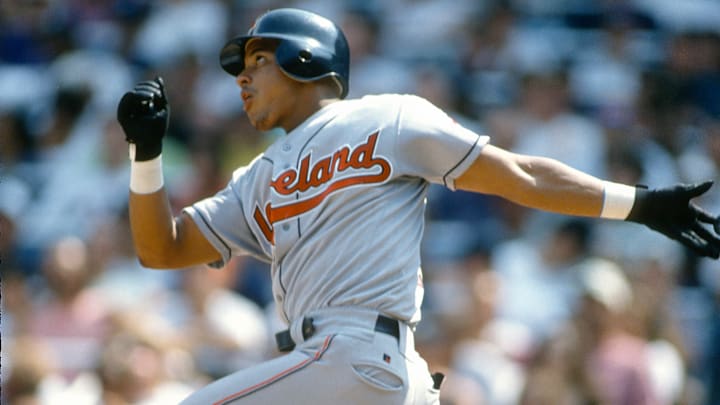The Baseball Writers Association of America elected Scott Rolen to the Hall of Fame last Tuesday night. Rolen earned just 76.3% of the votes, with a minimum of 75% required for induction. Rolen’s induction provides hope for players who have low vote totals, especially in early years of eligibility.
In his first year on the ballot, he received a meager 10.2% of the vote, which increased significantly each year since. With only ten years on the ballot since the updated voting rules went into place in 2014, speculation was that this new format would limit the number of players elected, but it seems to have increased the urgency for writers to vote for players they feel are worthy sooner, leading to steeper increases in voting percentages for players such as Rolen.
With Rolen’s induction comes questions about a number of players who remain on the ballot who have continued to fall short. Several of those players who look to make similar jumps in their percentages in future years have connections to Cleveland. Unfortunately, the two most high-profile players' cases are clearly hurt by the “character clause,” and the most likely former Cleveland player to actually make the Hall of Fame only played 39 games with them in a brief stint in 1996.
Manny Ramirez was a slam-dunk first-ballot Hall of Fame candidate until not one, but two PED suspensions tarnished an already colorful legacy. He is unequivocally one of the best hitters in the history of baseball, hitting 555 home runs in the regular season, plus a record 29 in the postseason. His 21 grand slams are second in major-league history to only Lou Gehrig. Ramirez added to that 2,574 hits and a career batting average of .312. He was named an All-Star 12 times (including 11 straight) and a Silver Slugger nine times. He also finished in the top ten in MVP voting nine times in his career.
Ramriez spent the first eight seasons of his career with Cleveland, starting with a second-place finish in the Rookie of the Year voting in 1993 as a 21-year-old. He was a key piece in an offensive juggernaut that brought Cleveland to two World Series appearances in 1995 and ’97 before signing with the Boston Red Sox as a free agent and leading them to two World Series titles.
After his departure from Cleveland, several on- and off-field character concerns, ranging from amusing to deeply concerning, created a complex case which was further complicated by PED suspensions late in his career. His name was leaked in connection to the 2003 Mitchell Report investigating steroid use in baseball, years prior to his 50-game suspension in 2009 and 100-game suspension in 2011.
Ramirez was the first player with a legitimate Hall of Fame case to hit the ballot following actual PED suspensions since Rafael Palmeiro in 2011. Yet, suspensions don’t seem to be a major factor in voting, indicating that writers often make judgments separate of the league-instituted testing. Ramirez has fared better than his contemporary sluggers Mark McGwire and Sammy Sosa, neither of whom ever faced suspensions.
Omar Vizquel, to anyone who watched him in his prime, was destined for Cooperstown. His sparkling defense was reason enough to watch a game, as you always had a chance to see something special. In his 24 seasons (including 11 with Cleveland) he won 11 Gold Glove awards. His career fielding percentage is the highest in baseball history for a shortstop, and he was not a slouch offensively as his 2,877 hits rank fifth all-time among shortstops.
In his time in Cleveland, following a trade from Seattle in exchange for Félix Fermín and Reggie Jefferson, Vizquel won seven Gold Gloves, helping lead the team to six postseason runs and two World Series appearances. His overall case seemed to have him on a similar track to Rolen with mild support early, which grew over time.
Unfortunately Vizquel’s case has been decimated since his retirement. Following domestic accusations in 2020, a civil lawsuit was filed against him in 2021 by an autistic batboy for the Birmingham Barons, who Vizquel was managing at the time. The combination of domestic violence and sexual harassment accusations led to Vizquel’s support for the Hall of Fame to plummet by over 50%. It seems highly unlikely with the ongoing character concerns and the heightened awareness of and attention to domestic and sexual violence that Vizquel will ever garner enough support to be elected.
Jeff Kent, who played 39 games in Cleveland in 1996, received just 46.5% of the vote in his tenth year on the ballot, and will fall off the ballot, hoping now that the Contemporary Baseball Era Committee elects him, as it did fellow slugger Fred McGriff this year. Kent’s vote percentage increased every year since 2018, yet the all-time home-run leader among second basemen fell well short of the votes needed in his last year.
Kent has an interesting case with an MVP award, three top-ten MVP finishes, five All-Star selections and four Silver Slugger awards. During an era of heightened offense, Kent was the most explosive and dominant offensive second baseman in the game.
